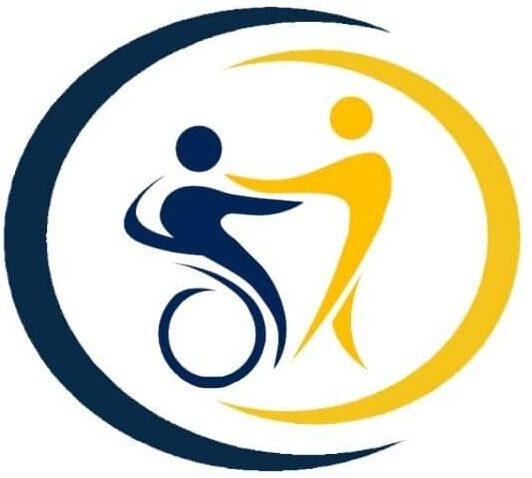In 2013, a telephone call was made to the Massachusetts Disabled Persons Protection Commission (DPPC) by a concerned mother of an adult son with a developmental disability. As a result of a sexual assault by one of his caregivers, the caller’s son, whom we’ll call Jack, was suffering significant trauma. As of the date of the call, Jack had not sought or received any trauma services.
Prior to the assault, Jack lived and worked in a community where he received supports to enhance his independence. After the assault, Jack had trouble sleeping and eating, and he was no longer able to work or live in the community. He left his job and moved back with his parents. Jack’s mother wanted to know how she could help her son return to living and working in the community. Unfortunately, at that time in Massachusetts, Jack wasn’t the only sexual assault survivor with an intellectual or developmental disability (I/DD) who fell through the cracks.
People with disabilities are among our most vulnerable citizens, yet shortcomings in adult protective, social and crime victim services prevent them from accessing timely trauma services tailored to meet their unique needs. In 2013, both victims and service providers recognized, as gaps in the system, the lack of service provisions for sexual assault victims with disabilities. DPPC conducted a review and found that, in only 12% of substantiated reports of sexual abuse, recommendations were made to refer victims to trauma services, despite people with disabilities identifying victim services, such as rape crisis centers, to be a helpful resource that those victims would recommend to other victims with disabilities.
In addition to having poor access to traditional victim services after experiencing sexual violence, people with I/DD were often unable to access specialized long-term mental health services because there was a dearth of trauma-informed clinical practitioners who were also trained to work with people with I/DD. In fact, at the time, a statewide survey to identify therapists dually qualified to work with people with disabilities who were survivors of sexual violence yielded just two such therapists in the entire state.
Research has shown that people with I/DD have the same responses to trauma as people in the general population. However, the significant health risks that traumatic experiences pose for all people are exacerbated for people with I/DD because of additional barriers to recovery, including slower cognitive processing, increased difficulty with decision-making and barriers to self-empowerment. Despite the high prevalence of sexual abuse and the significant impairments resulting from sexual abuse against people with cognitive disabilities, Post-traumatic stress disorder (PTSD) is largely under-diagnosed and under-treated in people with I/DD. Misinterpretation of symptoms is common, with post- traumatic stress symptoms being falsely interpreted as resulting from I/DD or from features of psychiatric disorders. Consequently, people with I/DD are often not offered treatment, or are offered inappropriate treatments.
Improving access to victim services for people with disabilities necessitates improving their access to long-term mental health treatment. Like other trauma victims, people with I/DD benefit from therapeutic intervention. Although it may take longer for victims with I/DD to make changes, once made, the changes remain stable. However, if untreated, people with I/DD are less likely to spontaneously recover from trauma. If acute post-traumatic stress symptoms go untreated and full PTSD develops and remains untreated, severe and long-term impairments may occur. A victim’s well-being, as well as his or her emotional, social, academic and physical development is negatively affected, resulting in higher costs of care and lower levels of subjective quality of life. By increasing access to trauma services, survivors with disabilities are empowered with meaningful choices and a road to recovery that works for them.
Utilizing the above research, DPPC leveraged its existing partnerships with self-advocates and other professionals to create new partnerships with those in the trauma services field. As a result, DPPC, with the support of BPI, issued guidelines and implemented trainings to improve, for sexual violence survivors with disabilities, communication and access to Rape Crisis Centers and other trauma services to help ensure that what happened to Jack didn’t happen to anyone else.
Stronger Together – A National Convening
Recognizing that this issue was not unique to the Commonwealth of Massachusetts, DPPC, BPI and the California Board Resource Center (BRC) with the cooperation of the National Adult Protective Services Association (NAPSA), organized a meeting, funded by BPI, as a pre-conference to the 2019 NAPSA Annual Conference.
The Convening to Develop a National Vision to Address Sexual Abuse Against Persons with Intellectual and Developmental Disabilities provided an important, first-time opportunity for self-advocates to collaborate with other professionals in the sexual assault and disability fields to effectively address sexual violence committed against people with disabilities. Nearly 300 attendees, representing forty states and Canada, attended in-person or by live-stream. The number and diversity of the meeting participants highlighted the importance of the issue across the country and abroad.
Massachusetts Peer Support Network (PSN) Today
PSN, in Massachusetts, continues to strengthen its support services for sexual violence survivors with disabilities throughout the Commonwealth of Massachusetts, always led and informed by self-advocates who work to communicate survivors’ needs and to ensure that every survivor with a disability receives appropriate and timely services. Its Peer Support Leaders are at the core of PSN and are integral to any outreach effort to raise awareness and to educate individuals and agencies about important trauma care.
